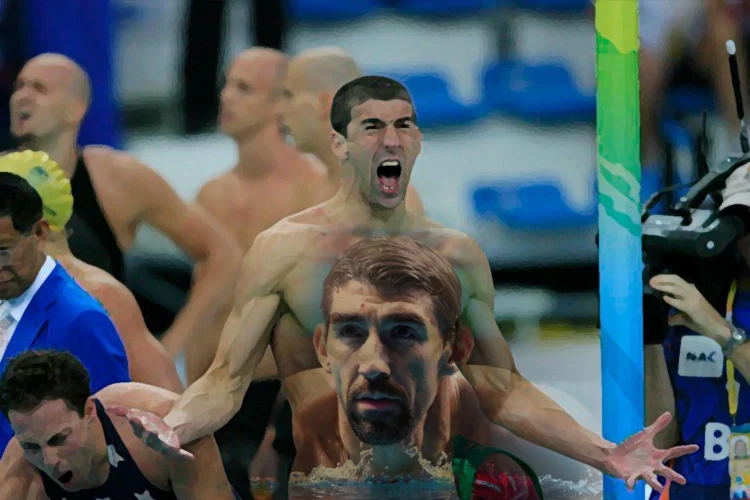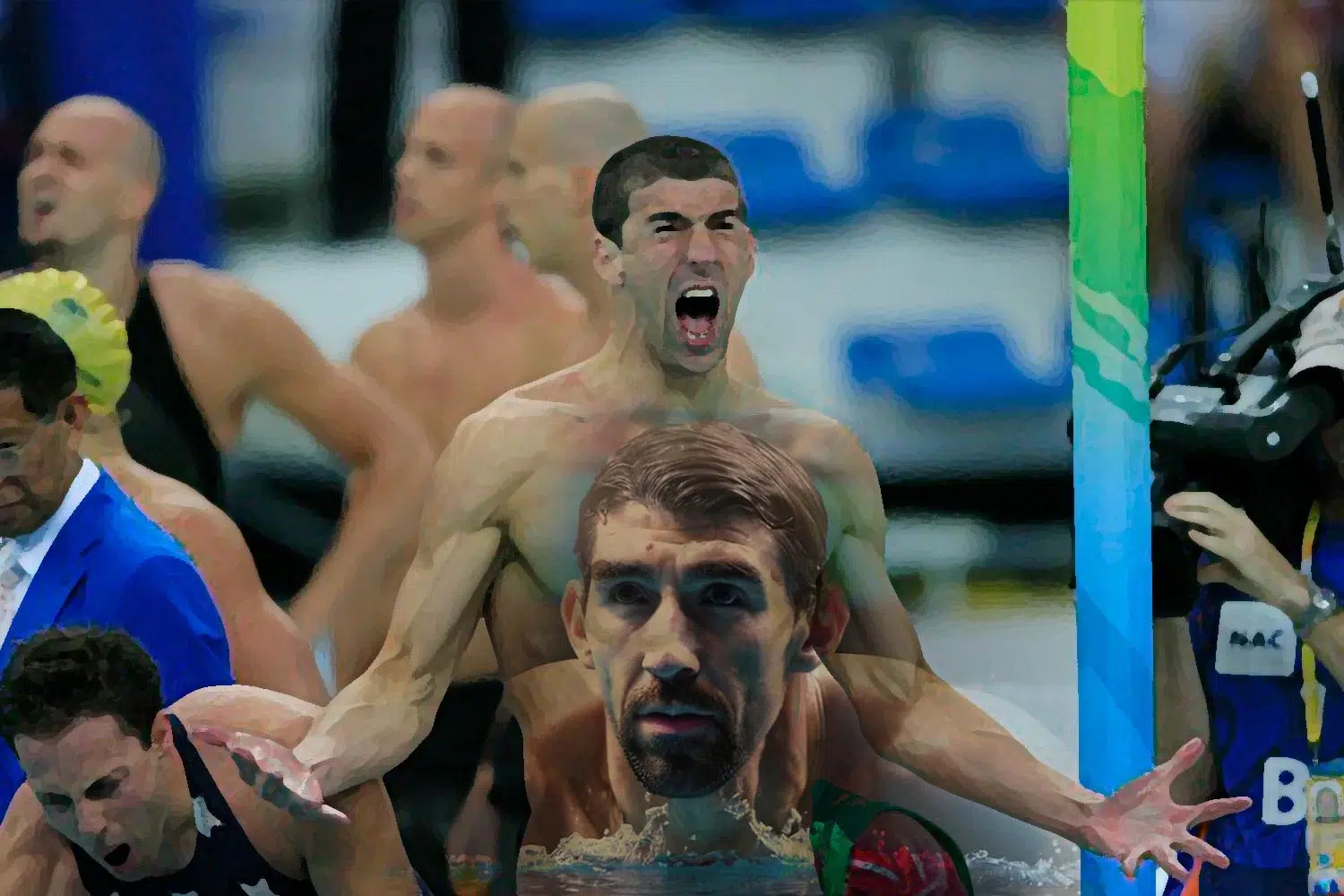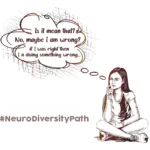Michael Phelps: How ADHD Fueled His Path to Olympic Glory and Mental Health Advocacy
Michael Phelps, the most decorated Olympian of all time, is renowned for his unparalleled achievements in swimming and his inspiring journey with Attention Deficit Hyperactivity Disorder (ADHD). Diagnosed at a young age, Phelps transformed the challenges associated with ADHD into strengths, becoming a symbol of resilience and determination. This article explores how Michael Phelps overcame the hurdles of ADHD to win a staggering 28 Olympic medals, including 23 golds, and how his journey continues to inspire millions worldwide. From his early struggles to his monumental Olympic triumphs and advocacy for mental health, we delve into Phelps’ story—a testament to the power of focus, support, and unwavering dedication.

Early Struggles: Facing ADHD Head-On
Recognizing ADHD: The Early Signs
From a very young age, Michael Phelps exhibited classic symptoms of ADHD: difficulties focusing, staying still, and following instructions. His teachers noticed his restlessness, mind wandering during lessons, and inability to sit still for extended periods. These early struggles mirror the experiences of many children diagnosed with ADHD—a condition that affects millions worldwide. According to the National Institute of Mental Health (NIMH), ADHD is one of the most common childhood disorders and can persist through adolescence and adulthood, affecting attention, hyperactivity, and impulsivity.
For Phelps, these challenges were a daily reality. Tasks that seemed easy for other children, such as concentrating in class or completing assignments, often felt insurmountable. His mind was constantly racing, and he struggled to stay focused. But little did he know that these very traits, once perceived as obstacles, would become the foundation for his incredible success in the swimming pool.
Acceptance and Understanding ADHD
Receiving an ADHD diagnosis was a pivotal moment for Phelps and his family. It was a time to understand the difficulties and opportunities that came with his unique brain. His mother, Debbie Phelps, played a crucial role in his journey. She sought advice from educators and psychologists, determined to ensure that her son wouldn’t be limited by his condition. As the Anxiety and Depression Association of America (ADAA) highlights, early diagnosis and intervention are essential in managing ADHD effectively, allowing individuals to develop coping mechanisms that turn their energy into positive outcomes.
Dr. Jane Smith, a child psychologist, emphasizes, “Redirecting the natural energy of children with ADHD into structured activities can turn challenges into strengths.” This philosophy became the guiding principle for Phelps’ journey. His family and coaches focused not on suppressing his ADHD symptoms but on channeling them in a way that aligned with his passions—particularly swimming. This early support laid the groundwork for Phelps to not just manage his ADHD but to thrive with it.
Finding Clarity in the Water: Swimming as a Focus Tool
For Michael Phelps, the swimming pool wasn’t just a place to train—it became a sanctuary where his racing thoughts were replaced by focus and discipline. In the water, the world’s distractions faded, and his mind found clarity. Swimming provided an outlet for the endless energy that came with ADHD. It allowed Phelps to channel his hyperactivity into something productive and rewarding.
Physical activities like swimming are known to improve concentration and mental well-being, especially in individuals with ADHD. The ADAA supports the idea that sports can serve as an effective tool in managing ADHD symptoms, offering a sense of achievement, structure, and emotional regulation. For Phelps, swimming wasn’t just a sport—it was his therapy.
The rhythmic strokes, repetition of laps, and singular focus required in swimming helped Phelps hone his concentration. His mind, often scattered and overwhelmed on land, was laser-focused in the pool. This hyperfocus—a characteristic often seen in individuals with ADHD—became one of his greatest assets. The ability to concentrate intensely on a task he was passionate about allowed Phelps to push past his limits and achieve extraordinary success.
The Power of Support: Family, Coaches, and Therapy
Unwavering Family Support
A crucial element of Michael Phelps’ success was the unwavering support of his family. His mother, Debbie, was a tireless advocate for him, ensuring that he had access to the resources and support needed to manage his ADHD. She embraced her role as both a parent and an advocate, working with teachers and psychologists to create an environment where Phelps could thrive.
The NIMH highlights the importance of a strong support system in managing ADHD, particularly the role that family members play; for Phelps, having a mother who believed in him and a family who understood his unique challenges made all the difference. They provided a stable foundation, allowing him to build the confidence and coping mechanisms necessary to turn his challenges into strengths.
Coaches Who Understood
Beyond his family, Phelps also benefited from the guidance of coaches who recognized his potential. They didn’t see his ADHD as a limitation but instead tailored their training methods to suit his needs. His longtime coach, Bob Bowman, created a structured environment where Phelps could channel his energy and focus on his goals. Personalized coaching strategies, as recommended by the ADAA, proved essential in helping Phelps harness his natural abilities.
Phelps’ coaches introduced clear, achievable goals, structured routines, and positive reinforcement—tools that helped him stay focused and motivated. They transformed the structured environment of the pool into a constructive space where Phelps could thrive. This approach allowed him to manage the symptoms of ADHD while pushing him to reach new heights.
Therapy and Mental Health Support
In addition to family and coaching support, Phelps has been vocal about the role of therapy in managing ADHD and maintaining his mental health. Therapy provided him with essential tools for focus, stress management, and emotional well-being, especially during the pressures of competitive swimming. The ADAA emphasizes the effectiveness of therapy in treating ADHD, offering strategies to manage symptoms and improve overall quality of life. For Phelps, therapy became a key component of his journey—not just as an athlete but as an advocate for mental health.
Turning ADHD into a Competitive Edge: Olympic Glory
Harnessing Hyperfocus
One of the most significant ways Michael Phelps transformed his ADHD into an asset was through hyperfocus. While ADHD is often associated with a lack of focus, individuals can sometimes exhibit intense concentration on tasks they are passionate about. Phelps used this hyperfocus in the pool to perfect his technique, build endurance, and prepare mentally for competitions. His ability to block out distractions and immerse himself in his training allowed him to excel at the highest levels of competition.
The NIMH points out that hyperfocus can be a tremendous advantage in certain settings, and for Phelps, it was a key factor in his Olympic success. His ability to channel his energy and focus intensely on his goals gave him an edge over his competitors.
Resilience and Adaptability
Phelps’ ADHD also helped him develop resilience and adaptability. Throughout his career, he faced numerous setbacks, including injuries, personal struggles, and the intense pressure of being an elite athlete. However, he continuously bounced back, demonstrating an ability to adapt to new challenges. The ADAA highlights resilience as a key factor in managing ADHD, and Phelps’ journey is a testament to this trait.
His ability to recover from setbacks and maintain a positive outlook allowed him to continue competing at the highest level for years, cementing his place as the greatest Olympian ever.
Advocacy and Legacy: A Champion for Mental Health
Michael Phelps’ impact extends far beyond his record-breaking Olympic career. His advocacy for mental health awareness and ADHD has had a profound influence on how society views these conditions. Phelps has openly discussed his own struggles with ADHD and mental health, using his platform to destigmatize these issues and encourage open conversations. His work with various mental health organizations continues to raise awareness and provide support for individuals facing similar challenges.
The NIMH underscores the importance of public figures like Phelps in reducing stigma and increasing understanding of mental health issues. Phelps’ legacy as an advocate is as significant as his achievements in the pool. He has shown the world that ADHD and mental health challenges do not have to limit potential; rather, they can be stepping stones to greatness.
“ADHD is something that can be a challenge, but it’s also what gave me an edge in the pool. You must learn to turn what people see as a weakness into your greatest strength.”
— Michael Phelps
Michael Phelps’ journey from a young boy diagnosed with ADHD to the most decorated Olympian of all time is a story of resilience, focus, and unwavering support. His incredible achievements in the pool and his dedication to mental health advocacy remind us that no challenge is too great to overcome. Phelps’ legacy serves as an inspiration, not just for athletes but for anyone facing obstacles in life. Through his journey, we see that ADHD is not a barrier—it’s a unique trait that can be harnessed for success.
We’d love to hear your thoughts! How has Michael Phelps’ story inspired you to overcome your own challenges? Share your reflections in the comments below!





